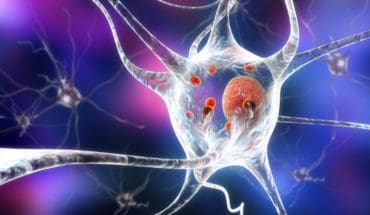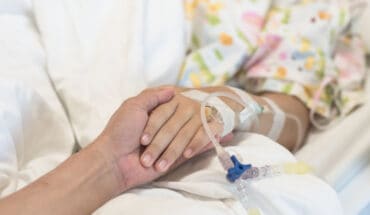Would any doctor continue to prescribe a drug which they had been told would benefit 20 per cent of patients with a specific illness, once the truth was revealed to be around 7 per cent, only one percent better than no treatment at all? You’d have to hope not and that concerned and angry doctors would then shout loudly that they had been lied to and that patients had endured years of pointless treatment.
Something like this has just been discovered about the official treatment for a condition that affects an estimated 150,000 people in the UK. Many are bedridden or on disability allowance and refusing to follow this NICE-approved treatment, can lead to a withdrawal of benefits.
The condition is Myalgic Encephalitis (ME) or Chronic Fatigue Syndrome (CFS) and the discovery that exercise plus psychotherapy are effectively useless was the result of a remarkable and very unexpected legal victory last month. It’s potentially a grave embarrassment for several senior psychiatrists and the Lancet, a respected medical journal.
Doctors and patients have long disagreed about the causes and treatment for ME/CFS. The official position is that the cause is unknown but that there is a strong psychological component to the disorder and that the best treatment at the moment is a form of psychotherapy called CBT (cognitive behavioural therapy) along with ‘graded exercise’ – doing a bit more every day.
The very serious effects of ME/CFS
Patients point to the severe and debilitating symptoms which include:profound fatigue, poor memory and problems with thinking, irregular changes in blood pressure and waking up feeling as tired as when you went to bed. They argue that these are far more likely to be the result of a serious and fundamental biological disorder perhaps in involving infection and the immune system.
What’s just happened involves hidden clinical trial data – an issue which is becoming increasingly important if doctors are going to give the best information to patients.
In justifying their position doctors have relied on a big trial of CBT and exercise lasting five years and costing £5 million, which reported that 61 per cent of patients benefited.
But following the legal victory last month some of the data from this trial has been re-analysed and the result, published last week, suggests that the size of the benefit has been massively exaggerated. It had been claimed that 60 per cent improved and 20 per cent recovered but the new analysis found that 20 per cent improved while the recovery rate was around 5 percent. (Details here.)
The trial known as PACE (link to article) was published in the Lancet in 2011 and persuaded NICE that CBT and exercise should be the standard treatment. Campaigning patients were far from persuaded, however, and ever since then they have been trying to get access to unpublished trial data because they suspected something seriously dodgy had been done with the statistics to make the results so positive.
Refusal to release data due to fear of criticism
Their letters and Freedom of Information requests for the data sent to the researchers at Queen Mary University in London (QMUL) have been rejected for the last five years on various grounds such as risk of revealing patient identities and being vexatious or a form of harassment.
But it turned out that these objections were either exaggerated or simply untrue. We know this because one of the FoI requests was supported by the Information Commissioner’s Office and earlier this year QMUL was ordered to cough up. The university refused and then spent over 200,000 pounds to have the order dismissed.
At a tribunal hearing in August, QMUL’s claims were put to the test. There might well be good reasons for keeping trial data confidential but if there aren’t, then continued secrecy is simply unscientific arse-covering, damaging patients and undermining trust in doctors.
The most plausible sounding objection was that the patient data ‘wasn’t sufficiently anonymised’ so some of those taking part in the trial might be identified. But it emerged that unpublished data had already been shared with academics considered friendly, so anonymity had possibly already been breached. Besides which, the commissioner pointed out, sharing only with sympathetic colleagues looks like an attempt to avoid criticism. Not a good reason for challenging an FoI.
University claims dismissed as wild speculation
During the years after the PACE trial was published those supporting it often raised doubts about the sanity and motives of those challenging the findings. It’s a line that the tribunal also rejected. An example of such claims can be seen in this extract from the transcript of an interview with Richard Horton, editor of the journal the Lancet, which published the trial, on an Australian radio station in 2011.
He described his critics as: “a fairly small, but highly organised, very vocal and very damaging group of individuals who have, I would say, actually hijacked this agenda and distorted the debate so that it actually harms the overwhelming majority of patients.”
QMUL was relying on a similar reason for declining to meet their critic’s requests. One of the expert witnesses explained that they were ‘young men, borderline psychopaths’ a claim dismissed by the Information Commissioner as ‘wild speculation’.
A similar wild claim – that their critics had been making threats – collapsed under cross- questioning when a witness admitted that there hadn’t been any threats. The only specific example that emerged was that one of the authors of the PACE trial had been heckled at a seminar.
How biased, unscientific and indeed evil
What’s striking about the report of the tribunal hearing (full report.)
is that the justification for keeping data secret, which is widely agreed not to be a good strategy in general, was so insubstantial. As the man who submitted this FoI – Alem Matthees, a bed-ridden patient in Australia – remarked: ‘False or misleading claims of recovery or remission for a debilitating illness have no place in the scientific literature’.
There is undoubtedly much anger among a substantial section of ME/CFS patients and they have been angry for a long time. I first wrote about this area over ten years ago after receiving a large bundle of documents in the post, supporting the idea of a biological cause, together with a note which read: ‘If you are able to expose just how biased, unscientific and indeed evil Wessely is, you would be regarded as a saviour of mankind.’ Excessive indeed but the material was plausible and scientifically literate.
The Wessely referred to is now Professor Sir Simon Wessely President of the Royal College of Psychiatrists who was then strongly identified with the psychological approach to ME/CFS. He wasn’t one of the authors of the PACE trial but was one of the doctors treating the patients and he has been a firm supporter. Last year he wrote a long blog post supporting the way the authors had handled their data.
When asked by an ME/CFS blogger last week about the finding that the effectiveness had been greatly exaggerated he was quoted as saying: ‘OK folks, nothing to see here, move along please.’ He added that patients did improve and that the treatments were moderately effective. You can see how such a response could make patients who were getting no benefit from treatment furious, incandescent even. It’s a variant on the infuriating: don’t you worry your pretty little head over it.
Not just report by ME/CFS patients that are ignored
Being alternately patronised or ignored, however much research you do, however forensic your critique, must have contributed to the anger that obviously fuels many patients. But the dismissive response to critics that emerged in responses such as Horton’s radio interview shows up in other medical fields. For example, with the cholesterol-lowering drugs statins. Recently statin critics have been accused of killing people by discouraging them from taking these life-saving drugs. Complaints that doctors fail to listen to patients’ reports of side-effects from taking or trying to come off anti-depressants are common
The idea that the critics of the PACE trial form a small group of disturbed people with a dangerous agenda doesn’t really stand up to scrutiny. Over the past year, twelve thousand CFS/ME patients signed a petition to put pressure on QMUL to release data for independent analysis along with over two dozen charities in 14 countries. Among those who analysed the released data and signed an open letter to the Lancet published online last year calling for a reassessment of the PACE trial were such senior clinicians and academics as:
Ronald W. Davis, PhD
Professor of Biochemistry and Genetics
Stanford University
Jonathan C.W. Edwards, MD
Emeritus Professor of Medicine
University College London
Leonard A. Jason, PhD
Professor of Psychology
DePaul University, Chicago
Bruce Levin, PhD
Professor of Biostatistics
Columbia University
The aspect of the trial they were all worried about was crucial to whether it showed CBT and exercise as effective or not. To decide if a treatment helps people recover, you have to have to be able to define what recovery looks like. Is it getting up for an hour longer or staying up all day? Being able to dress yourself or going back to work? If you make it easier to meet the definition, the number of people recorded as having recovered will shoot up. The critics claimed that the psychologists running the trial had dramatically weakened all of their “recovery” criteria long after the trial started, without seeking approval.
The result, claimed the patient blogger Julie Rehmeyer, was that participants could enter the trial, get worse on two out of four criteria, and then be called “recovered.” ‘It was possible to have poorer physical function than 92 percent of the British working-age population and still have ‘recovered’.
By getting some of the raw data from the trial, the independent researchers were able to assess what the recovery rates would have been if the original criteria had been stuck to.
A victory for patients seeking proper therapies
It’s not clear what the effect of the re-analysis is going to be. The activists obviously feel spectacularly vindicated. ‘It’s a victory on multiple fronts,’ says Vincent Racaniello professor of microbiology and immunology at Colombia University in New York. ‘For patients seeking the proper therapies but also for transparency in science and the need to have data available for review by others.’
But like Professor Wessely, the authors are simply continuing to deny there is a problem. ‘It makes not a ha’p’orth of difference,’ says the lead investigator on the trial Dr Peter White responding to the reanalysis. ‘Cognitive behavioural therapy and graded exercise are still statistically significantly better than pacing or specialist medical care.’
This seems to ignore a crucial fact – that the percentage benefiting was greatly lower than the trial had claimed. And far from making no difference, this result strongly suggests that there is a serious lack of any effective system for reassessing clinical results once they have been accepted. It took five years of informed campaigning plus a lucky legal action initiated by a bedridden man in Australia to trigger a review; this cannot be the best way to do it.
If the findings of the reanalysis are confirmed – and there will have to be a lot more checking of them – it should prompt UK medical institutions to take a far more proactive approach to the biological underpinnings of ME/CFS. This is already happening in the USA. Earlier this month a ground-breaking study was published in a top journal – the Proceedings of the National Academy of Sciences. It claims to have discovered the ME/CFS holy grail – a clear metabolic signature that accurately distinguishes patients from healthy individuals.
The team, which carried out the research at the University of California San Diego also says that it has linked the biochemical changes that indicate ME/CFS to a down-regulation of mitochondria – the tiny power plants found in every cell. As a result, the scientists are claiming that:’(ME/CFS) is an objective metabolic disorder that affects seven of the body’s key functions.’ These include mitochondrial energy metabolism, immune function, GI (the guts) function and the autonomic nervous system. For a reader-friendly summary: see.
It would also be good if what’s happened with ME/CFS wasn’t regarded as just a little local difficulty. The need to take patient voices into account is much wider than that.
- Cancer treatments giving false hope - 23rd October 2017
- Vaccine safety – don’t shut down the debate - 22nd February 2017
- New view of cancer - 20th November 2016







Thank you so much for this article. I am a mother of a 16 yr old boy who has had ME since the age of 12. Previously fine, fit, health, happy young lad. Went to school one day, picked up a virus and simply never recovered. Over the years he has become quite severe with a myriad of symptoms. Saying that M.E. Is a fatiguing illness is like saying someone with Alzheimer’s has a little bit of forgetfulness. His symptoms included a total bowel shutdown, constant unrelenting headache for years, extreme light and noise sensitivity, intermittent new onset dyslexia, daily… Read more »
Thank you so much for covering this story. As Jemb123 has said, the impact of the PACE trial has been far reaching. I live in New Zealand and here, and in Australia too, the prevailing medical view is that ME can be fixed with a bit of positive thinking and getting off the sofa more often. Like Jemb123, I am the mother of a teenage son, previously a bright, fit and happy boy of 13 and now for 4 years largely confined to his bedroom after a viral illness. My teenage daughter and I became ill with ME at the… Read more »
I am deeply grateful for Jerome Burne’s excellent article about ME/CFS and the flawed PACE trial. I have been sick with ME/CFS for 25 years. As a co-moderator of the Seattle ME/CFS support group, I know first hand about the ravages of the disease, not only for myself, but also for the ninety members of the Seattle support group. We have members who have been bedridden for years. We have one member who was stricken at thirteen who is now forty years old. She sometimes has to crawl to the bathroom from her bed because she does not have the… Read more »